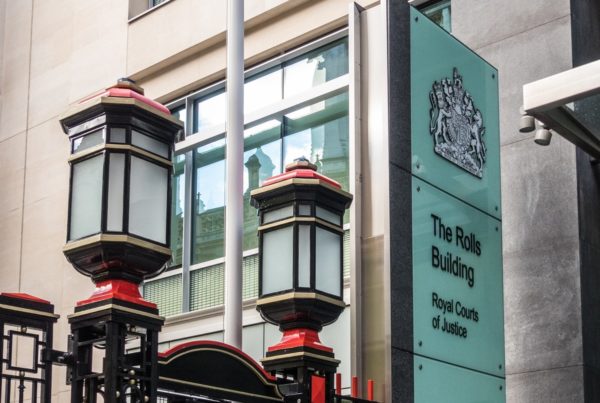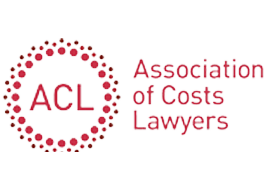Securing interim payments on account of costs from the opponent is one of the most important exercises to undertake in order to maintain adequate cash flow and improve lock-up performance. This article addresses the four stages during both the substantive action and detailed assessment procedure at which interim payments should be sought from the paying party, as well as the level of payment that can reasonably be requested.
1. During the Substantive Action
In certain circumstances, interim payments can be obtained during the substantive action. CPR 44.2(1) and (2) are drawn widely enough to allow the court to make an interim payment on account of costs in clinical negligence or personal injury cases where liability has been resolved and it may be many years until quantum is resolved.
In RXK v Hampshire Hospitals NHS Foundation Trust [2019] EWHC 2751 (QB), Master Cook set out guidance as to how claimants should make such applications.
Judgment had been entered for damages to be assessed in July 2017, which also awarded the claimant her liability costs subject to assessment. This order also provided for interim payments of £100,000 on account of damages and £50,000 on account of costs. Two years later at a CMC in March 2019, the claimant sought a further £150,000 on account of costs. This amounted to circa 60% of the total costs incurred by the claimant to date.
Master Cook endorsed the approach adopted by HHJ Robinson in X v Hull & East Yorkshire Hospitals NHS Trust [2019] 2 WLUK 723 (25 February 2019), namely that CPR 44.2(1) and (2) were wide enough to allow the court to make an order of this nature. However, he found that the application that should be made in these circumstances is for a costs order down to a specific date and an interim payment on account of those costs. Such orders can be described as a ‘prospective’ or ‘anticipatory’ costs orders as they are made before the conclusion of the proceedings.
The application should contain information that will enable the Court to have regard to the circumstances at CPR 44.2(4) and (5), namely:
(a) the conduct of all the parties;
(b) whether a party has succeeded on part of its case, even if that party has not been wholly successful; and
(c) any admissible offer to settle made by a party which is drawn to the court’s attention, and which is not an offer to which costs consequences under Part 36 apply.
The conduct of the parties includes –
(a) conduct before, as well as during, the proceedings and in particular the extent to which the parties followed the Practice Direction – Pre-Action Conduct or any relevant pre-action protocol;
(b) whether it was reasonable for a party to raise, pursue or contest a particular allegation or issue;
(c) the manner in which a party has pursued or defended its case or a particular allegation or issue; and
(d) whether a claimant who has succeeded in the claim, in whole or in part, exaggerated its claim.
Another relevant consideration was preserving security for the defendant and to ensure that there was a limited risk of such costs having to be repaid and, therefore, other issues that the application could address include:
-
The type of funding agreement and details of any payments made under that agreement;
-
Whether any Part 36 or other admissible offer has been made, and if so, full details of the offer;
-
Details of any payments on account of damages made to date;
-
A realistic valuation of the likely damages to be awarded at trial;
-
A realistic estimate of the quantum costs incurred to the date of the application;
-
Any other factor relevant to the final incidence of costs, such as the possibility of an issues-based costs order or relevant conduct; and
-
The likely date of trial or trial window.
In RXK the solicitor’s witness statement failed to adequately address any of these issues and so no substantive decision was given, however, the judgment provides useful guidance as to how an application should be made in these specific circumstances to ensure adequate cash flow.
2. Settlement of the Substantive Action / Before the Detailed Assessment Procedure
The first point at which an interim payment should be sought for most cases is within the final order reflecting the terms of settlement. CPR 44.2(8) provides that where the court orders a party to pay costs subject to detailed assessment, it will order that party to pay a reasonable sum on account of costs, unless there is good reason not to do so. The purpose of this rule, originally introduced in consequence of the Access to Justice Final Report, was to enable a receiving party to recover part of their costs before the detailed assessment procedure.
It is surprising how frequently a clause to the effect of ‘the paying party is to pay £x to the receiving party’s solicitors within 21 days of the final order’ is omitted from the final order. If necessary, the receiving party should take steps to draft a Tomlin Order that will guarantee them a reasonable interim payment towards their costs as part of the terms of settlement. It may also assist the paying party by providing them with a very brief summary of the costs incurred or even simply a headline figure.
Even if the matter settles by way of acceptance of a Part 36 offer, Global Assets Advisory Services Ltd & Anor v Grandlane Developments Ltd & Ors [2019] EWCA Civ 1764 is authority that a court can make an interim order for costs after a Part 36 offer has been accepted within time. If the paying party objects to the inclusion of a clause providing for an interim payment to be made within the Consent Order, the receiving party can consider making an application to the Court under CPR 44.2(8) before detailed assessment proceedings are commenced. This is the first opportunity to secure an interim payment in most cases.
3. Upon Commencement of Detailed Assessment Proceedings
Once the detailed assessment process has begun, the next opportunity to request an interim payment is by virtue of applying for an interim costs certificate under CPR 47.16 (see below). However, this does not mean that the receiving party should not request the paying party to make an interim payment on account of costs following service of their statement or bill of costs. Paying parties are usually willing to make an interim payment up to the level of their opening offer of settlement or to the sum of which their points of dispute would reduce the bill of costs to. If paying parties have not yet made an interim payment at this stage, it is prudent for them to do so in order to minimise the interest payable, which tends to accrue at 8% per annum unless the Court orders otherwise.
4. Interim Costs Certificate
The fourth and final opportunity to obtain an interim payment on account of costs is by requesting an interim costs certificate under CPR 47.16. This can be done at any time after the receiving party has filed a request for a detailed assessment hearing. A party wishing to apply for an interim certificate may do so by making an application in accordance with CPR 23. The Court has wide powers to issue a certificate for such sum it considers appropriate.
However, where the matter is the subject of provisional assessment (bills of costs under £75,000), there will be a final certificate shortly after the assessment and so an interim costs certificate will serve no practical purpose or result.
Reasonable Level of Payment to Request
There is an abundance of case authorities relevant to the question of what amount should be paid on account of costs and, therefore, we will only consider some of the benchmark cases.
In Mars UK Ltd v Tekknowledge Ltd [1999] 2 Costs LR 44 Ch D, the judge undertook his own approximate assessment of what he thought the likely recovery would be and awarded a significant proportion of that sum, which in this case was two-thirds.
Cases that have been subject to costs management may warrant a greater payment on account to be made. It was accepted that the introduction of costs budgets altered the position when ordering a payment on account of costs in Thomas Pink Ltd v Victoria’s Secret UK Ltd [2014] EWHC 3258 (Ch) in which Birss J awarded an interim payment of 90% of the budgeted sum.
In MacInnes v Gross [2017] EWHC 127 (QB), Coulson J also found that the starting point will almost always be the receiving party’s last approved costs budget and that a 10% deduction from the same would be appropriate.
It is important to note that, pursuant to paragraph 7.4 of PD 3E, it is only the estimated costs that are approved by the Court; the incurred costs are not approved and remain subject to detailed assessment. Should the receiving party, therefore, receive an interim payment for 90% of the total costs i.e. both incurred and estimated costs? In Cleveland Bridge UK Ltd v Sarens (UK) Ltd [2018] EWHC 827 (TCC), the Judge accepted that Coulson J in MacInnes could not have intended to put in place a general rule of 90% payment on account of costs in respect of sums that are not to be treated as approved. Instead, the Court must determine in every case, a reasonable sum in respect of the incurred costs. In this instance, the judge held that 70% was a reasonable sum to pay on account in respect of the incurred costs.
Of course, each case will be fact specific and the appropriate level of interim payment to be made will turn on the individual facts of the case. However, where a claim for costs is reasonable and there are no concerns with regard to proportionality, the case law suggests that an interim payment can reasonably be sought for 65 – 70% of any costs that are subject to detailed assessment and 90% of any costs that have already been approved by the Court.







